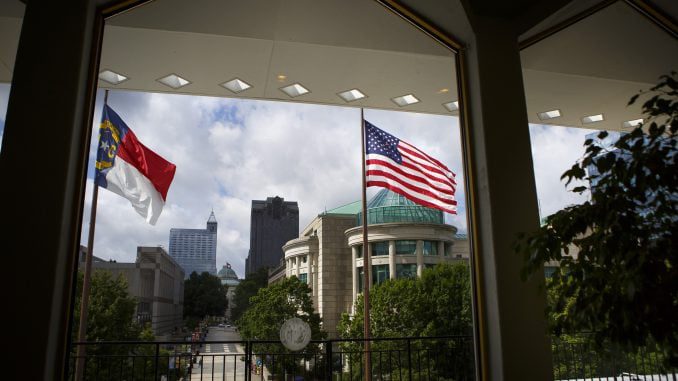
We are approaching the 12-year anniversary of the passage of the Affordable Care Act (ACA). While not perfect legislation, one thing the ACA did well was offering states the option of expanding Medicaid coverage to hardworking Americans who are making ends meet, but barely. Only 12 states have chosen not to expand Medicaid, and North Carolina is one of them. At first, that decision was understandable. Even though the federal government promised to bear almost all of the financial burden, North Carolina was concerned that its budget could still be overwhelmed by new Medicaid expenses. So, we waited to see the benefits… or the fallout.
As we waited, states that expanded saw decreases in poverty rates, deaths from opioid overdoses, rural hospital closures, and health insurance premiums. All of these successes happened while often producing net savings for state budgets.
How did states save money? By covering more people with health insurance, states no longer had to foot the bill for people who could not afford expensive treatments. States also gained revenue from healthcare-related taxes as more people sought services. The National Bureau of Economic Research found that while overall Medicaid expenditures significantly increased under expansion, the increase was essentially covered by the federal match; state-sourced Medicaid expenses in expansion states have not risen significantly in any year since 2010.
Yet still, North Carolina waited. We waited as six rural hospitals closed and health disparities increased. We waited as the COVID-19 pandemic and ensuing economic crisis forced hundreds of thousands more people into the health insurance coverage gap.
Now, nearly 12 years after the ACA was first introduced, we are still waiting.
In the Christian tradition, one account of Jesus’ life includes the story of a woman who also waited 12 years for care. She had been to every doctor she could find. She had gone bankrupt seeking treatment and advice. She suffered for 12 years until, out of sheer desperation, she reached out to a wandering carpenter who people said could heal the sick.
When Christians read this story, we often jump straight to the healing part, wondering at the power of Jesus. We do not pay enough attention to the strength it took for the woman to reach out one more time. The good news of this story is that even at her lowest point, she had the courage to reach out…and when she did, she found healing.
Twelve years after the ACA was introduced, hundreds of thousands of people in North Carolina are still waiting for healing. Expanding Medicaid will not immediately end their suffering like the touch of a cloak. But we certainly know that closing the coverage gap will provide care to the uninsured, help stabilize the healthcare sector and benefit local economies. We know it can do all this without being a drag on the state’s coffers. Most importantly, we know it is something we can do together.
“A large crowd followed [Jesus] and pressed in on him. Now there was a woman who had been suffering from hemorrhages for twelve years. She had endured much under many physicians and had spent all that she had; and she was no better, but rather grew worse. She had heard about Jesus and came up behind him in the crowd and touched his cloak…and she felt in her body that she was healed of her disease.” Mark 5:24-29
A striking 77% of North Carolinians — rural and urban, conservative and liberal — support closing the coverage gap. Over 200 leaders of businesses, local governments and faith communities have joined together to call for a state-wide solution. We have powerful allies — both Republican and Democrat — in the General Assembly and the Council of State who are ready to make this happen. Just this month, a bipartisan council was convened to consider how best to address this dire situation. Its members represent a wide variety of perspectives, committed to both public wellbeing and fiscal responsibility.
One of the challenges this commission faces is deciding how to cover the state’s share of expansion expenses without burdening a tight budget or taking away from other key priorities. We can look to other states such as Virginia and Montana that have done this, but North Carolina will have to choose a solution that works for our particular needs.
After 12 years, many who have been searching for a North Carolina solution to the health insurance coverage gap may be rightfully weary. Regardless of our individual faiths, I hope we can find strength in the story of the brave woman in Mark’s gospel who refused to admit defeat. It may take everything we have to reach out one more time. But we can take comfort knowing that this time, we will be reaching out…. together.
John Coggin is a public policy and nonprofit development consultant and a doctoral student in the Durham University (UK) Department of Theology and Religion. He previously served as the treasurer of Care4Carolina, a coalition of over 80 organizations committed to finding a North Carolina solution to the health insurance coverage gap.
